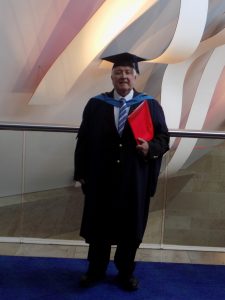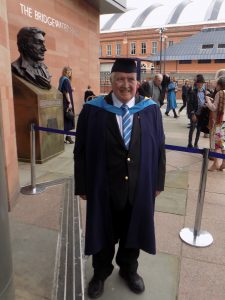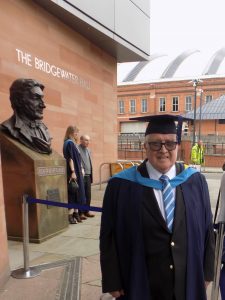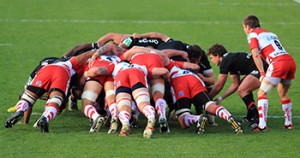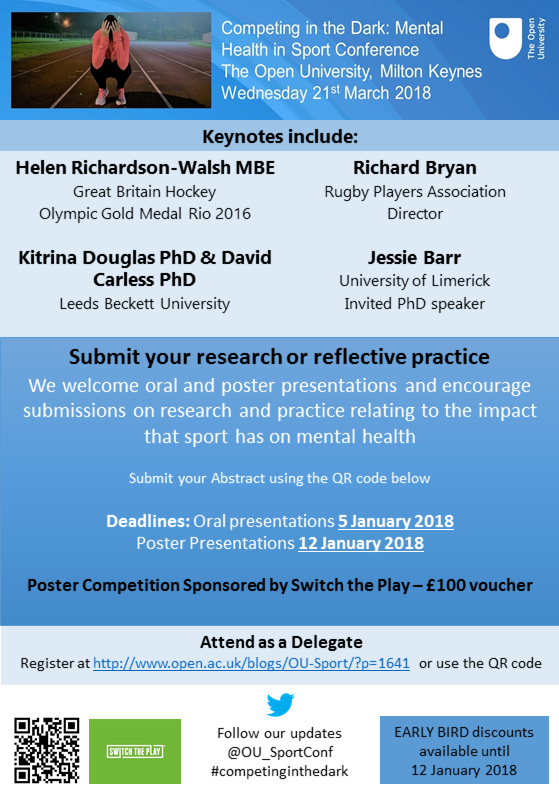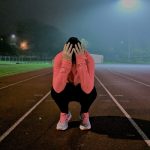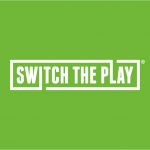On 21st March 2018 we held our third annual sport and fitness conference, which explored the important topic of mental health in sport. By chance the conference coincided with the announcement that the government would be putting in place a mental health action plan for elite athletes. This timely event fuelled the enthusiasm for the topic before the day had even begun. We were joined by top class presenters and delegates from a wide range of backgrounds which led to some rich discussions on mental health.
MORNING SESSION
The morning session saw three diverse presentations from three of our keynote speakers. These presentations allowed us to examine mental health from the perspective of the athlete, researcher and professional body.
Keynote 1: Helen Richardson-Walsh, MBE
Reflections on a career in elite sport
The day kicked off with and inspiring and often emotional presentation from 2016 Olympic Gold Medallist Helen Richardson-Walsh.
Keynote 2: Jessie Barr, University of Limerick
Mental health stigma within an Irish sport context
Next up was our our invited PhD student speaker Jessie Barr who shared her research exploring mental health in elite athletes. Jessie’s presentation saw her draw on her fairly unique position of being a both a researcher and an Olympian.
Keynote 3: Richard Bryan, Rugby Players’ Association
Lift the weight: A player association perspective on mental health in professional sport
In our final keynote presentation before lunch Richard Bryan shared some of the the positive work that is being done to support the mental well-being of rugby players.
AFTERNOON SESSION
The afternoon session started with the parallel sessions where a wealth of diverse and informative presentations took place. These were followed by the poster presentations. Congratulations to Emily Lake (Career ending injury experiences of professional rugby players: A loss perspective) for winning the prize for best poster (sponsored by Switch the Play).
The day ended with our final keynote session from Dr Kitrina Douglas and Dr David Carless ‘“I couldn’t be successful without it being the most important thing”: The impact of stories on mental health in sport‘. This innovative session explored mental health in sport using stories and narrative case studies. The session was highly impactful and a fitting end to what was excellent day thanks to all of our presenters and delegates.
Click on the links below to view other posts about the Competing in the Dark Conference.
Competing in the Dark Conference Flyer




